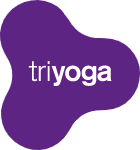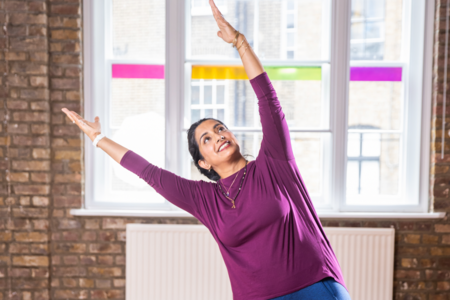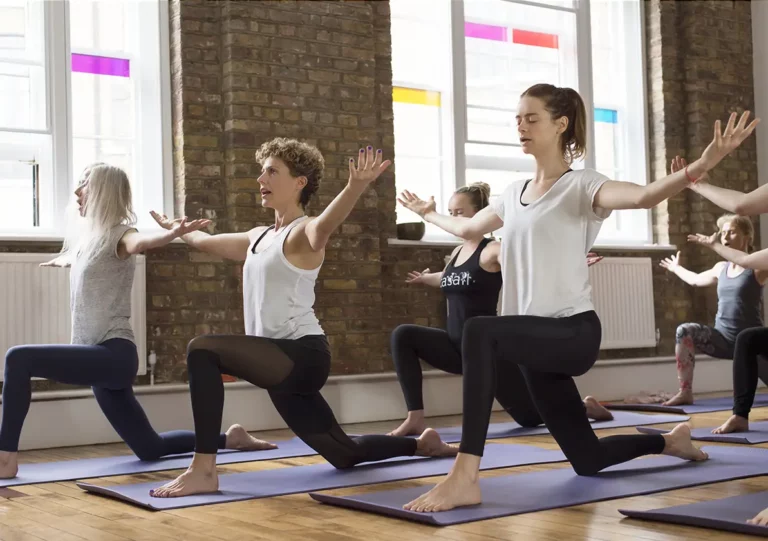Here at triyoga we’re trying to identify the simple ways that you can control and manage your stress. Bodytalk therapist Merran Lusher uses her expertise in energy work, naturopathy, nutrition and intuition to identify the symptoms and natural ways to go about managing it.
Stress is a natural part of life. There are many different types of stressors that can affect us all in different ways. Certainly with all that is going on in the world right now socially, politically and economically many of us are feeling the pressure!!
Symptomatically stress manifests itself in all sorts of ways. Fear not though, help is at hand. There are many effective tools we can use to mitigate stress from our lives. Tools that can help us to develop our emotional resilience and better manage external pressures. According to the American Psychological Association, there are three types of stress – acute stress, episodic stress, and chronic stress – all which can make us feel out of sorts and even ill.
But what is exactly is stress? Stress is our body’s reaction to feeling threatened or under pressure, whether real or perceived. In acute stress, our sympathetic fight or flight response kicks in, our Hypothalamic-pituitary-adrenal (HPA) axis engages and our stress hormones respond: heart rate increases, blood pressure rises, breathing quickens and muscles tighten. In episodic stress, our bodies respond in a similar way but the symptoms occur more often and accumulate with time. Chronic stress can wear us down to the very core and arise from long term ongoing pressures over many years.
Symptoms of Stress
Stress can affect us physically, emotionally, mentally and energetically. Mind, the mental health charity outlines some of the many different types of stress-induced signs and symptoms we can all experience:
- Emotional symptoms of stress can include: Feeling easily irritated, agitated, anxious, worried, neglected, lonely, uninterested in life, frustrated, depressed, sad or moody, avoiding others, feeling overwhelmed or like you are losing control, and/or low self-esteem.
- Physical symptoms of stress include: Shallow breathing, hyperventilating, insomnia or problems getting to sleep, low energy, panic attacks, headaches, chest pain, rapid heartbeat, high blood pressure, clenched jaw, grinding teeth, nausea, indigestion, digestive issues, low sex drive, muscle aches and pains, dizziness or fainting.
- Cognitive symptoms of stress include: Inability to focus, poor judgement, forgetfulness, constant, worrying, poor memory, busy mind, disorganised and scattered thoughts.
- Behavioural symptoms of stress include: Difficulty in making decisions, constantly worrying, irritability or tearfulness, changes in appetite (not eating enough or eating too much), procrastinating and avoiding responsibilities, inability to concentrate, increased use of alcohol, drugs, or cigarettes, nail biting, picking at skin, pacing and fidgeting.
Natural Ways to Manage Stress
Thankfully there are many great resources at hand to reduce and combat the negative impacts of stress. Here are some of my top recommendations.
Take care of your body:
- Sleep is a powerful stress reducer: Following a regular bedtime routine can help to prepare for a good night’s sleep, calm and restore the body, enhance our resilience to stress and support focus, concentration and decision-making processes. Avoid caffeine after 3pm and limit screen time before bed.
- Eat healthily: There is a growing amount of evidence showing us that food affects our mood and feelings of wellbeing. Healthy eating patterns such as the Mediterranean diet are associated with better mental health.
- Keep hydrated: Water is essential for healthy brain chemistry and accounts for about 75% of brain mass. According to a 2017 study in the International Journal of Environmental Research and Public Health cognitive performance and mood can be impaired by dehydration and improved by water supplementation.
- Treat yourself: Indulging in monthly treatments like holistic massage, acupuncture, BodyTalk and reiki are all wonderful for calming the nervous system and lowering stress levels.
- Breathing: Take deep breaths, stretch or meditate. The breath is our essential life force. Alternative nostril breathing or box breathing are effective breathing techniques that help to calm the autonomic nervous system and reduce stress.
- Exercise: This is one of the most important things we can do to combat stress. It stimulates the release of endorphins, which make us feel good. It also lowers our body’s stress hormones, helping us to sleep better and feel less stressed. Find an exercise routine you enjoy e.g. yoga, chi gong, Pilates, tai chi and make it a regular part of your life.
- Make time to unwind: Taking time to relax will also help to reduce stress. Put yourself first and practice self-care.
Nutritional and herbal supplements:
- Valerian root: This is an effective traditional sleep aid used for centuries. The natural plant compound valerenic acid alters our GABA receptors which helps to lower anxiety.
- Vitamin D: Healthy levels of vitamin D play an important role in supporting emotional wellbeing, mood and mental health. Low levels are linked to depression and anxiety and susceptibility to infections.
- Magnesium is brilliant for lowering stress and anxiety, enhancing sleep quality, reducing tiredness and much more.
- Vitamin B complex: Healthy adrenals play a critical role in effectively managing stress. A complete complex of B vitamins with extra vitamins B5 and B6 for adrenal support can help combat the effects of anxiety and stress.
Go inwards, get out into nature and connect with others:
- Mindfulness and meditation: The average person has over 30,000 thoughts a day. Studies show that 75% to 95% of all illnesses are a direct result of our thoughts, which affect us both physically and emotionally. Meditation induces a state of calmness, positivity and mental clarity in daily life.
- Disconnect to reconnect: There is an increasing body of evidence showing that smart phones can interfere with sleep, productivity and mental health, and chronically increase cortisol levels. Take breaks from your smartphone, computer and social media platforms. Turn off notifications and alerts.
- Get into nature: Frequent your nearest park, woodlands, heath or beach. Nature, sunlight and fresh air are therapeutic, helping to de-stress, ground, balance and energise.
- Connect with others: Spend time with people who get you, be it old friends or new. Avoid people who are draining (energy vampires) or people who bring you down. Find a support group.
- Make conscious positive changes in your lifestyle, beliefs, fears and judgments. Forgive, let go and try to focus on keeping your thoughts uplifted.
- Music and podcasts: Listen to music that uplifts you, or listen to an inspiring speaker that you resonate with. Try out the popular app ‘Insight Timer’ which has thousands of free meditations and mindfulness practices you can unwind with.
- Light a scented candle and use aromatherapy oils: Essential oils are very effective for reducing feelings of stress and anxiety. They offer calming, energising effects and lift our mood. Lavender, bergamot, frankincense, rose, neroli, sandalwood, chamomile, ylang ylang and citrus oils are all great options.
The key to managing ongoing stress is first of all recognising its presence in your life. The second step is to then make a commitment to decrease your stress levels and manage the situations you face in a different way.
Following the above recommendations may help to not only minimise the effects of stress and anxiety, but also reduce the impact of stress on your physical, emotional and mental health and wellbeing.










